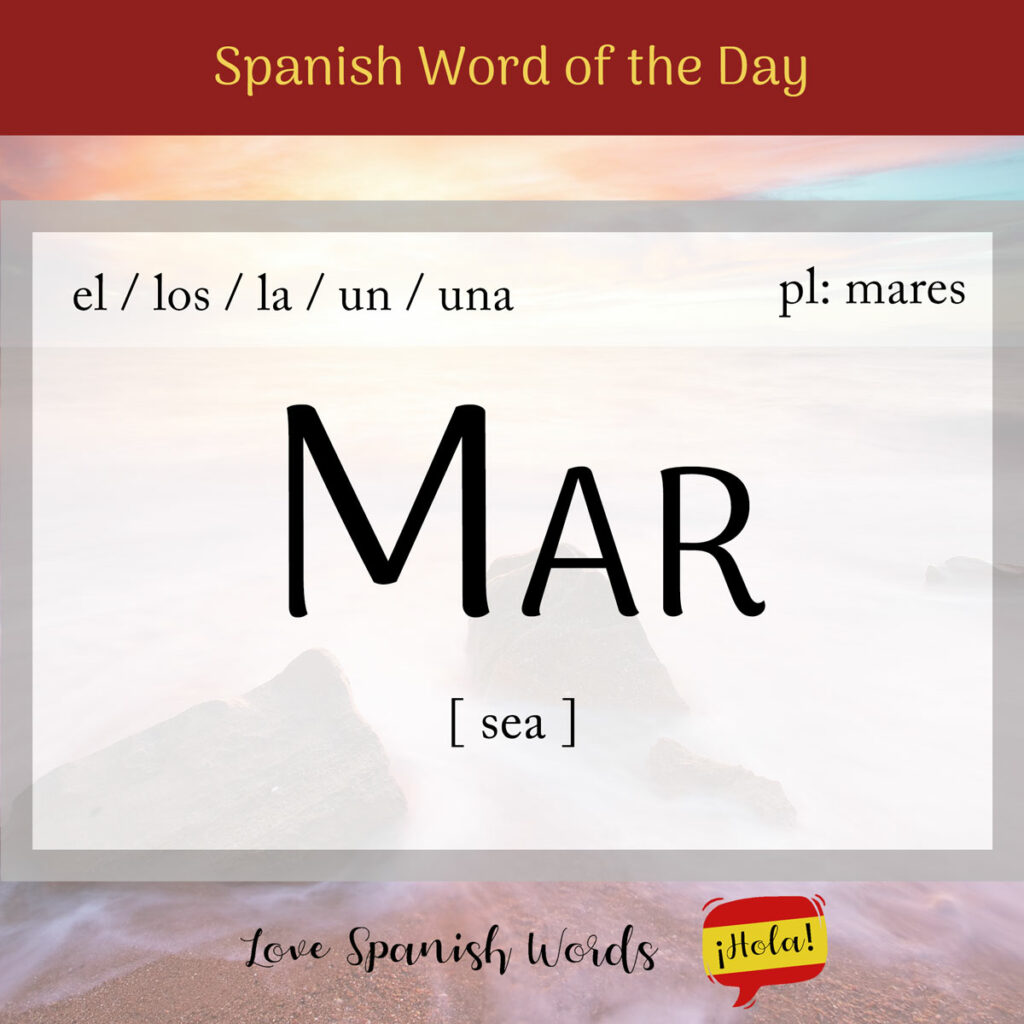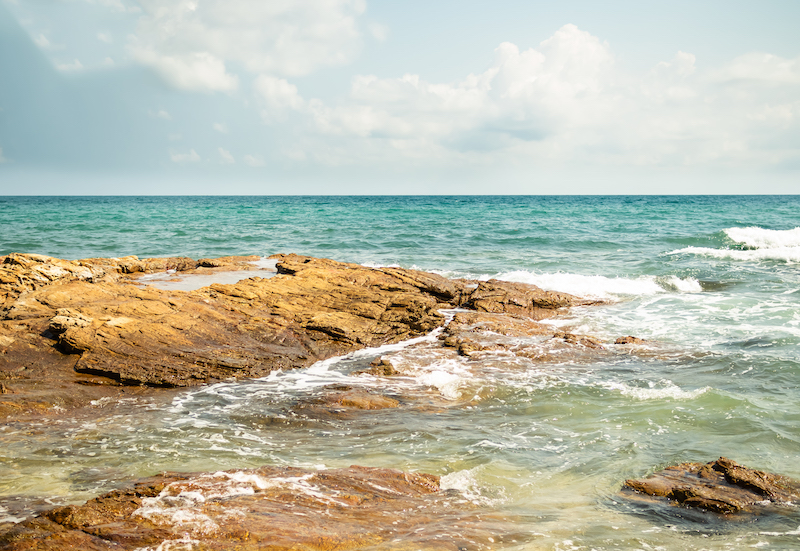My family is fortunate; we live just a stone’s throw away from the sea. In Spanish, the sea is known as mar.
Latin American Pronunciation
European Spanish Pronunciation

The term derives from the Latin mare, which was neuter, or in other words, neither masculine nor feminine. As a result, Spanish developed both a masculine and feminine form for this word.
Generally speaking, the feminine form appears in poetry and literature, in some idioms, and in the language of seafarers, while the masculine form is used for everything else, including the names of important seas. Either may be used when describing the state of the sea.
El mar estaba muy agitado.
The sea was very rough.
Here are the definite and indefinite articles used with this word. Note that the plural form mares is always masculine.
Masculine
- el mar = the sea
- los mares = the seas
- un mar = a sea
Feminine
- la mar = the sea
- una mar = a sea
Me encanta vivir junto al mar.
I love living by the sea.

Here are some common adjectives used to describe the state of the sea:
- mar bravo = rough sea
- mar picado = choppy sea
- mar espumoso = foamy sea
- alta mar = high sea(s)
- mar tranquilo = calm sea
- mar sereno = calm sea
- mar calmo = calm sea
- mar abierto = open sea
If you want to describe something that is “by the sea” or “on the coast,” you can use the expressions al lado del mar or junto al mar.
Me gustaría tanto tener una casa junto al mar.
I’d love to have a house by the sea.
Figuratively speaking, mar (or more specifically the expression un mar de “a sea of”) can be used to describe an abundance of something. For example:
- un mar de diferencia = a world of difference
- un mar de dudas = lots of doubt
- un mar de lágrimas = a flood of tears
La mar de, on the other hand, is an idiomatic way of saying very, extremely or loads of.
Mi abuela está la mar de contenta.
My grandmother is very happy.

Idioms containing ‘mar’ in Spanish
An amusing idiom in Spanish is ¡Me cago en la mar!, which literally means “I shit in the sea!” but is equivalent to the English “Damn it!” or “Darn it!” A milder version of the same expression is ¡Mecachis en la mar! (or just Mechasis! on its own). Despite their seemingly vulgar nature, they are used quite frequently. Just be mindful before using them with your grandmother!
¡Mecachis! hemos hecho otros planes.
Darn, we already made other plans!
Another common idiom you will certainly encounter on your Spanish language learning journey is ¡Pelillos a la mar! which means “Let bygones be bygones!” The literal translation is “trivial matters to the sea.”
Finally, we have the idiom eso es hablar de la mar, which literally translates to “that’s just talking about the sea.” It’s used when discussing something that is impossible to do or realise, akin to the English idiom “that’s just pie in the sky.”

